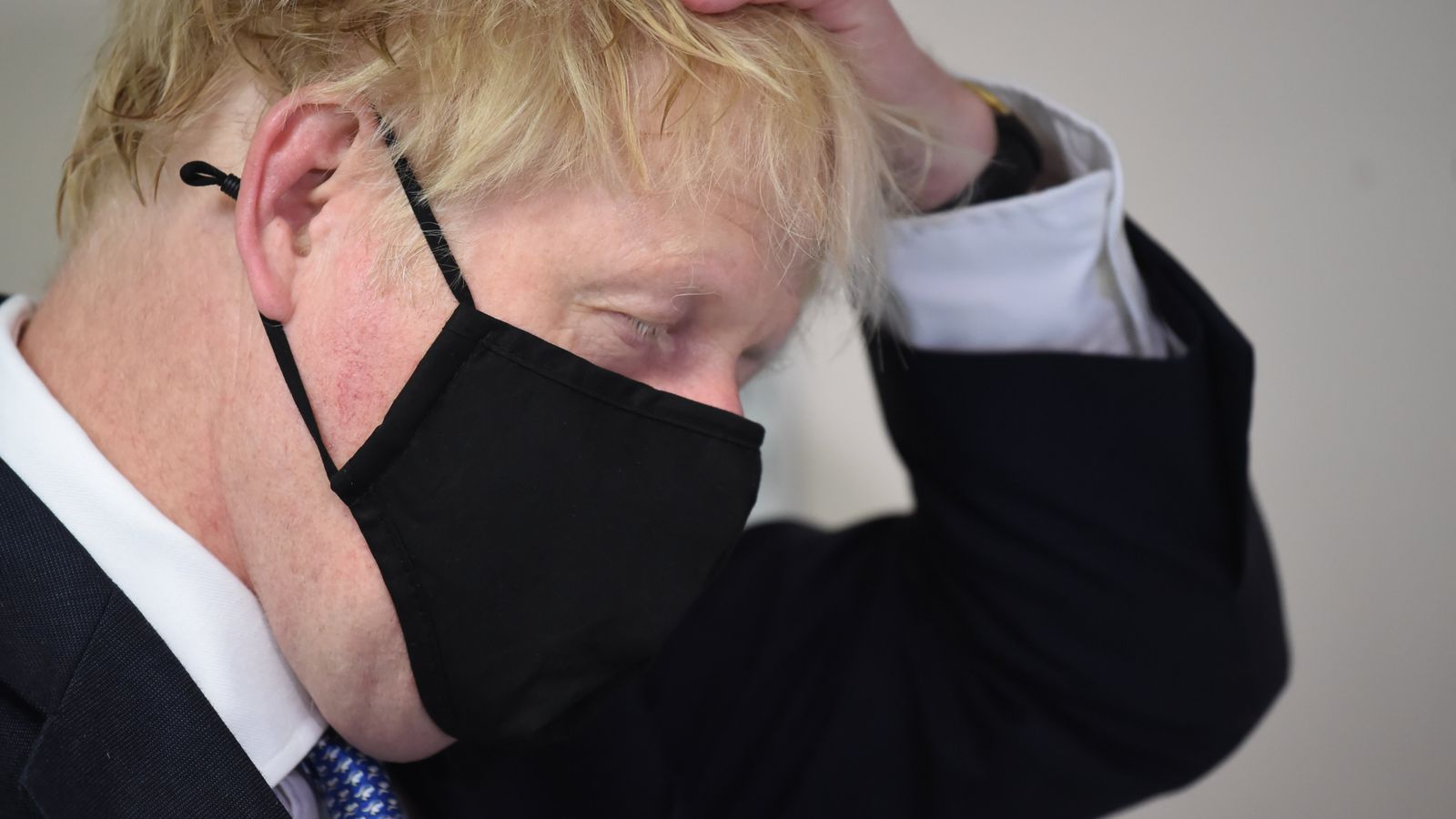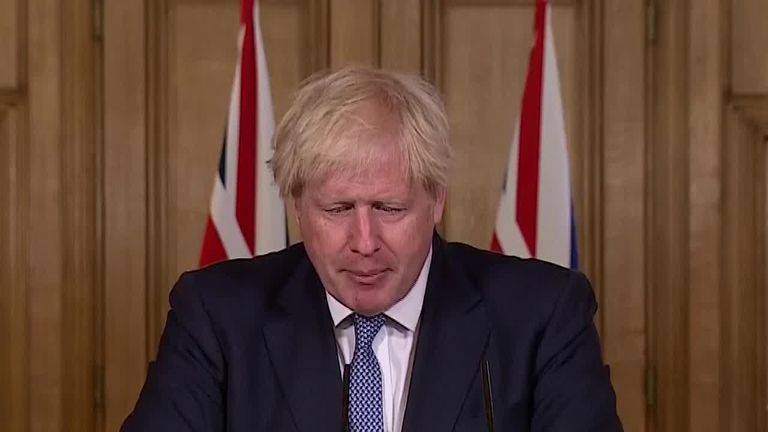The honeymoon is over.
Gone is the optimistic tone of normality returning by Christmas as the scales of influence tip back from the economists to the scientists.
So the brakes have been put on. But what could come next?
In a hint at a new strategy, we now hear of the need for “trade-offs” with the chief medical officer saying the country is at the limit of what can be re-opened.
That will lead some to wonder what will need to shut down for things like schools to reopen safely.
Boris Johnson has clearly been spooked by an increase in the number of people testing positive in England and worrying signs of a second wave brewing on the continent.
The prime minister knows a botched reopening and painful second wave would be a tragedy on a human level and a catastrophe on a political one.
So amid a volley of incoming fire about apparent delays bringing in lockdown, the government is now unapologetic about acting rapidly and sometimes brutally.
But moving fast risks breaking things.
Accusations of an excessively broad brush approach have been levelled at the restrictions on Spain and the measures in the North West.
A heavy-handed reintroduction of controls will lead some to conclude they should have never been eased in the first place.
The course of the virus in the devolved nations – who have taken a more cautious approach – could also show up the Westminster government.
But despite the shift in tone back to public health, the economy still matters.
The chancellor’s much-lauded furlough scheme starts to phase out from tomorrow.
:: Listen to the All Out Politics podcast on Apple Podcasts, Google Podcasts, Spotify, Spreaker
Businesses forced to put reopening plans on ice will wonder why they are not being given extra support.
The noises of caution coming from Westminster may also put the frighteners on levels of shopping and spending.
England has entered a new chapter in its coronavirus story.
It may not be as tragic as those that have come before, but it will be just as tricky.


